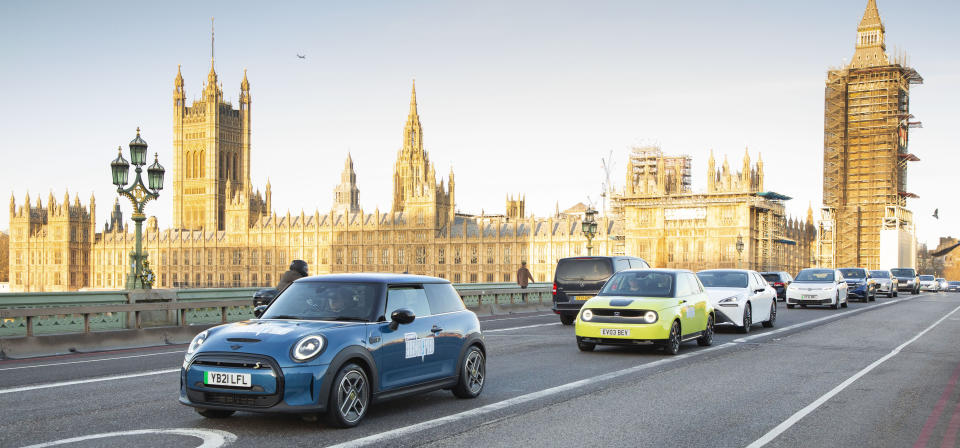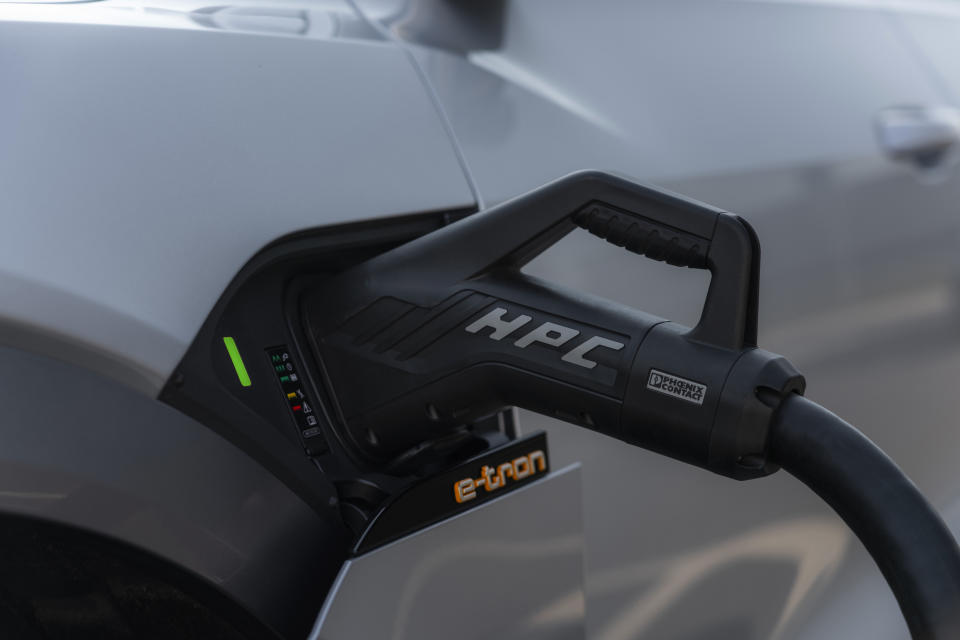Government urged to cut VAT from electric vehicles to encourage uptake
The government should remove the VAT from electric vehicles to encourage motorists into them, according to a leading industry body.
The Society of Motor Manufacturers and Traders (SMMT) points to the fact that private EV sales accounted for less than five per cent of all car sales in 2020, compared with almost nine per cent of business and fleet sales.
That’s despite electric vehicles accounting for about 10 per cent of new cars being made, with around a quarter of the total number of new cars having some kind of plug-in electrification.
If the government wants to encourage uptake and smooth progress towards the 2030 ban on the sale of traditionally fuelled cars, the SMMT says it must address concerns ‘over affordability, charge point availability and infrastructure reliability’.

Last week, the plug-in car grant was cut from £3,000 to £2,500, while the price cap for eligible vehicles dropped from £50,000 to £35,000. This puts the UK well behind other European countries, with EV buyers in Germany able to get a €9,000 (circa £7,700) discount, while buyers in the Netherlands don’t pay VAT on EVs, equivalent to a saving of about 16 per cent.
The SMMT says retaining the current plug-in car grant and exempting EVs from VAT in the UK would increase uptake by two-thirds by 2026, compared with current predictions.
The industry body also predicts 2.3 million public charge points will be needed by 2030 to service these vehicles, providing adequate national coverage and tackling range anxiety. This would require 700 charge points to be installed every day until the end of the decade, compared with the current rate of 42 per day.
"It is ambitious for industry & gov. The positive response shows that we are on track to meet the 2030 target. Delivering zero carbon & being a trail blazer for EV production isn’t just down to the industry alone, we are in this race together"@grantshapps#SMMTElectrified pic.twitter.com/h6NbopaKfJ
— SMMT (@SMMT) March 25, 2021
SMMT figures suggest around one-in-three households have no dedicated off-street parking, leaving them reliant on public infrastructure.
Mike Hawes, SMMT chief executive, said: “While last year’s bumper uptake of electric vehicles is to be welcomed, it’s clear this has been an electric revolution primarily for fleets, not families.
“Manufacturers are committed to the consumer, reducing costs and providing as wide a choice as possible of zero-emission capable vehicles with many more to come.
“To deliver an electric revolution that is affordable, achievable and accessible to all by 2030…we need incentives that tempt consumers, infrastructure that is robust and charging points that provide reassurance, so that zero-emission mobility will be possible for everyone, regardless of income or location.”

The news comes from the SMMT’s Electrified event, which lays out its blueprint towards zero-emission motoring by 2030. Hawes accused the government of playing a game of ‘snakes and ladders’ with consumers by announcing a ban on petrol and diesel and models then cutting EV incentives. It also pointed to other mixed message moves, such as reducing home charging grants and ignoring emissions-reducing measures in the budget, but also securing favourable Brexit deals for the automotive industry.
Grant Shapps, secretary of state for transport, said: “We have much work to do. We need to choose electric. We need to be making concerns about range anxiety a thing of the past. And I know with your support and advice we will get there. But we have reasons to be confident”

 Yahoo Sport
Yahoo Sport 





































